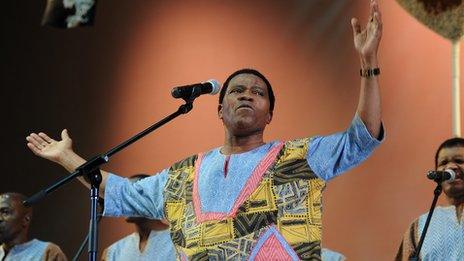Why is Swing Low, Sweet Chariot the England rugby song?
- Published
This story was first published on 7 March
Swing Low, Sweet Chariot could clearly be heard while Martin "Chariots" Offiah played at the Middlesex Sevens in 1987
The mystery behind why Swing Low, Sweet Chariot was first sung at the home of English rugby has been solved, the Rugby Football Union (RFU) believes.
It has long been an anthem of England fans and is belted out lustily whenever the national team plays at Twickenham.
The African-American spiritual was not thought to have been sung there until 1988, when Chris Oti got a hat-trick.
But archive footage has now been found of it being sung at Twickenham in 1987 when Martin "Chariots" Offiah played.
The speedy winger was given the nickname Chariots Offiah as a play on words with the film Chariots of Fire, which is about two athletes racing in the 1924 Olympics.
Curator of the Twickenham-based World Rugby Museum Phil McGowan, who unearthed the footage, believes Swing Low was clearly sung in 1987 with a nod to the "chariot" in both the song's name and Offiah's nickname.
The discovery of the archive footage, from the 1987 Middlesex Sevens tournament, was a surprise even to the rugby legend himself.
"People used to ask if it was a reference to me and I said, 'I don't think so'," said the 53-year-old Londoner, who is regarded as one of the greatest rugby league players of all time but who started out in rugby union.
"When the RFU told me they had found this footage I thought, 'Wow, so I have got some link with this song'."
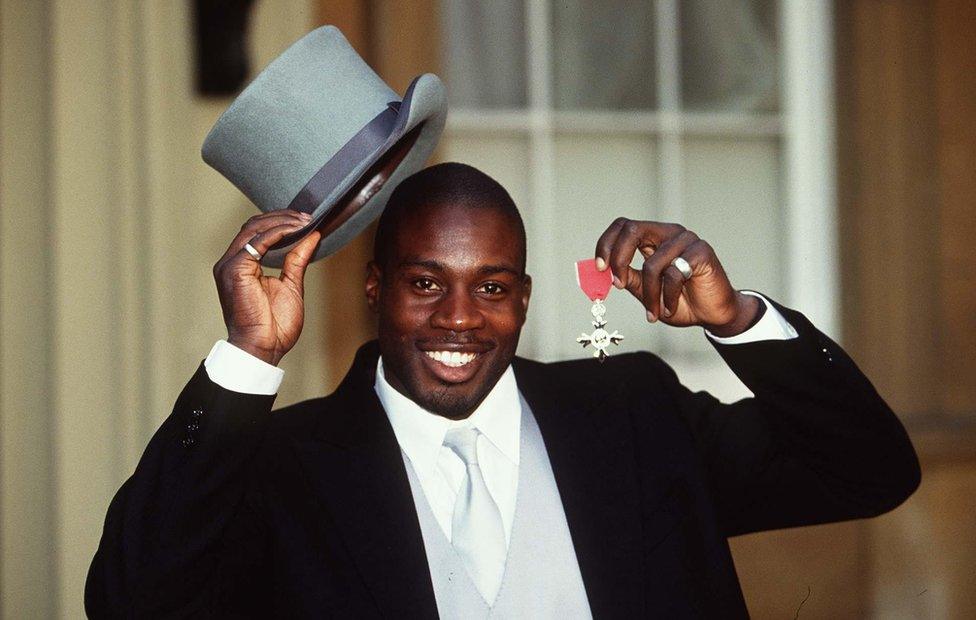
Martin Offiah's surname sounded similar to "of fire" when said by many commentators, although the correct pronunciation is "Off-ee-ah"
McGowan said what sparked his detective work was a conversation with a visitor to the World Rugby Museum, who "very casually" said he remembered singing Swing Low for Offiah at the Middlesex Sevens.
"That wasn't much of a big deal but later on it occurred to me that Martin Offiah only played at the Middlesex Sevens in 1987, which was the year before this song was supposed to have been sung for the first time [at Twickenham]," said McGowan.
He then got hold of archive footage from the BBC programme Rugby Special.
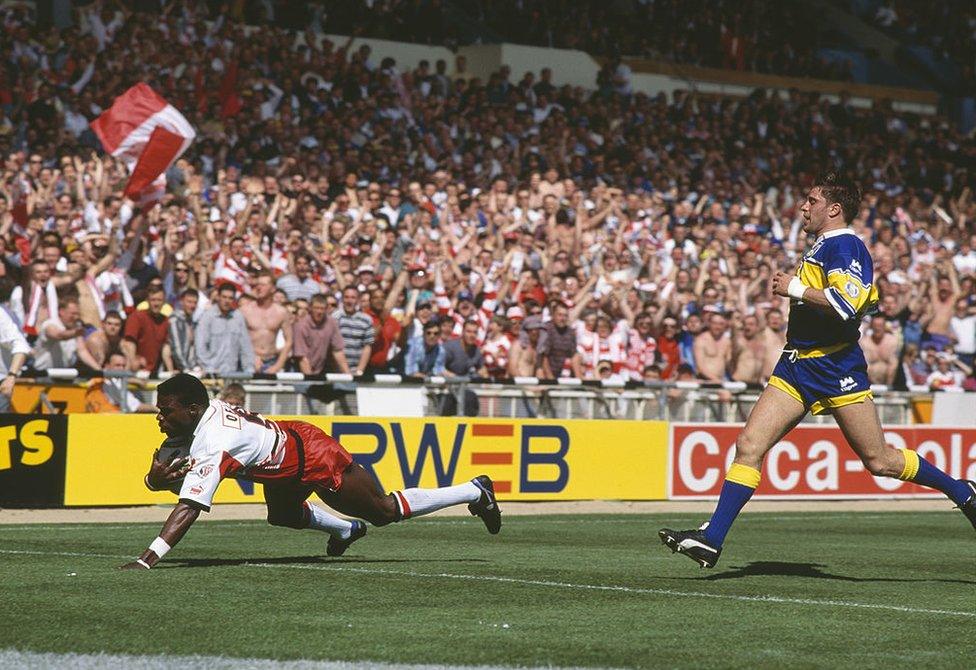
Offiah started his career in rugby union but went on to become one of the most successful rugby league players of all time
"I played it through and there it was, it's unmistakeable," said McGowan, who was "very surprised" because the story about England winger Oti had been established for a long time.
"That solves the mystery of why on earth were they were singing this song," he said.
"The association with Martin Offiah suggests it was a play on words. His name was already making waves, so a lot of people would have turned out to the Middlesex Sevens just to see him play."
McGowan believes many rugby fans would have already known Offiah by the nickname Chariots.
"In his autobiography he actually mentions that he was given this nickname by the chairman at Rosslyn Park, which was the rugby union team he was playing for in 1987. So that nickname was already in circulation at that time."
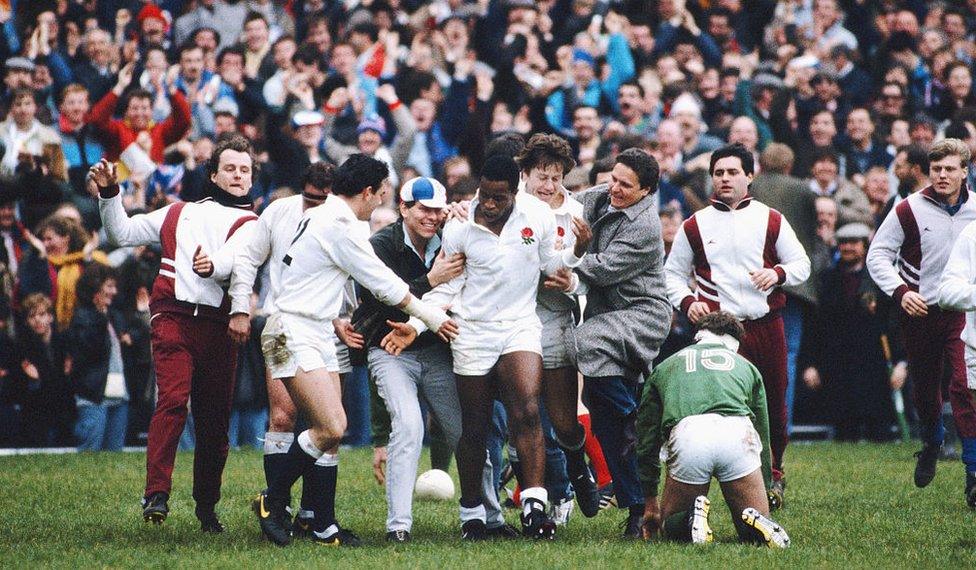
Until now, many thought Swing Low, Sweet Chariot was first sung at Twickenham in 1988, when Chris Oti scored a hat-trick
McGowan believes the crowd at Twickenham would already have known Swing Low because it had been sung in rugby clubs since the 1960s, "for what reason I couldn't tell you".
Folk singer Joe Stead has claimed he introduced it to the rugby fraternity as early as 1960 after hearing it from civil rights activist Paul Robeson.
In relation to its debut at Twickenham, the longstanding theory was that a group of boys from Douai School in Berkshire started singing, external the song when England played Ireland in the Five Nations Championship in 1988. The boys were said to have been serenading Oti, a black player, making this theory controversial because the song is linked with slavery.
Four members of Market Bosworth Rugby Club have also claimed they started singing the song first at the same match, but said they were not serenading Oti.
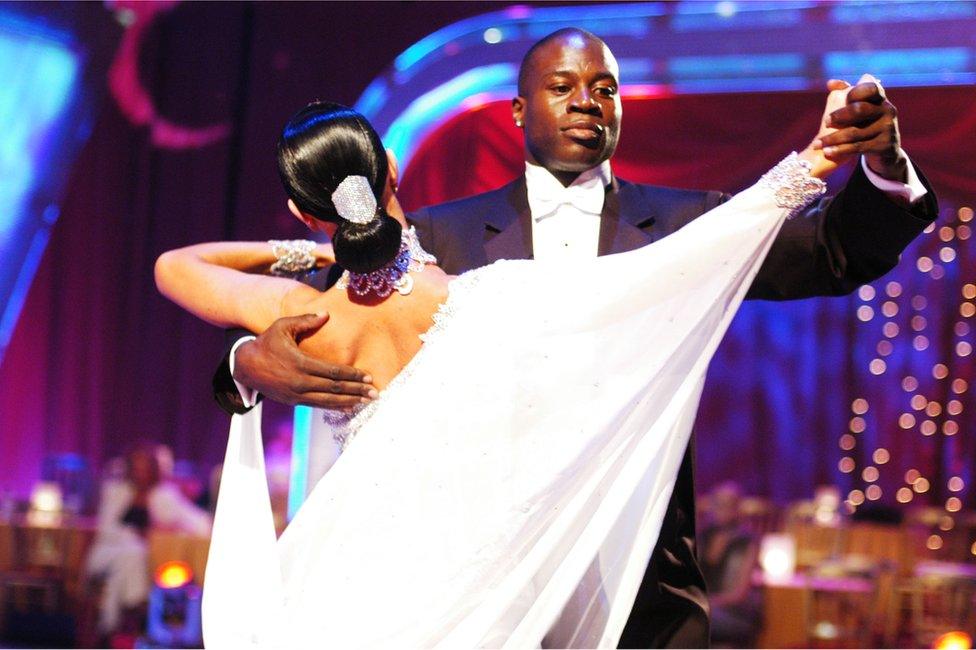
Offiah, pictured here on Strictly Come Dancing, said the song "will resonate even more with me" now
Offiah said people often still sing Swing Low at him when he is watching matches, even though his link to the song had not been established until now.
And in a neat coincidence, Chariots of Fire screenwriter Colin Welland was a rugby fan and penned the foreword to Offiah's autobiography.
"He wrote some beautiful words about me and he wrote about seeing me playing rugby union at Twickenham and being Chariots," said Offiah.
"I was like, 'Oh wow' but it didn't really dawn on me."
Offiah added: "I still go to Twickenham quite a lot and they sing either Jerusalem or Swing Low and a lot of people in the crowd turn to me.
"I didn't think I had ever been on a pitch while people were singing it.
"I'm hoping to be at the game against Wales on Saturday and that song will resonate even more with me."

'A song about death'
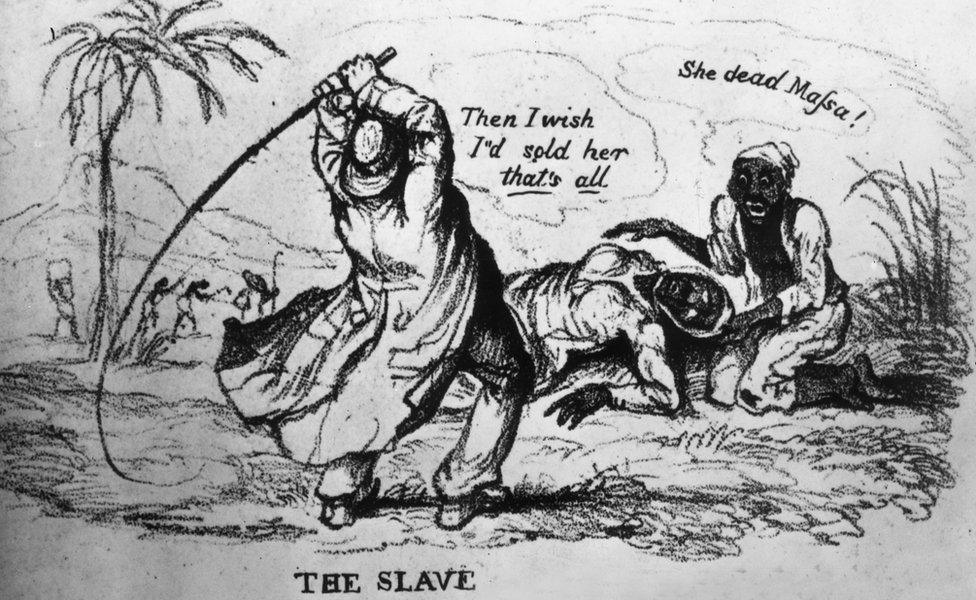
Swing Low, Sweet Chariot is thought to have been composed by a slave called Wallace Wallis with his wife Minerva in the mid-1800s.
There are several theories about its meaning, including that it conveyed a coded message to slaves, instructing them to escape. However, Horace Clarence Boyer, a prominent scholar of African-American music, believed the song was about death.
Prof Boyer, who died in 2009, told a BBC documentary that the song fits into a group of spirituals that say: "I would rather die than be here. Lord, just come and take me right now."
He explained: "Swing low, sweet chariot, coming for to carry me home.' Where's home? That's heaven. Or at least not here."
The song was brought to a wider audience by the Fisk Jubilee Singers, who made the earliest known recording of it in 1909.
It has been covered by artists including BB King, Sam Cooke, Etta James, Eric Clapton, Johnny Cash and Beyonce.
A version called Swing Low (Run With The Ball) was recorded for the 1991 Rugby World Cup. Other versions have been recorded for subsequent world cups, including by UB40 and Russell Watson.

Follow BBC East Midlands on Facebook, external, Twitter, external, or Instagram, external. Send your story ideas to eastmidsnews@bbc.co.uk.
- Published16 December 2017
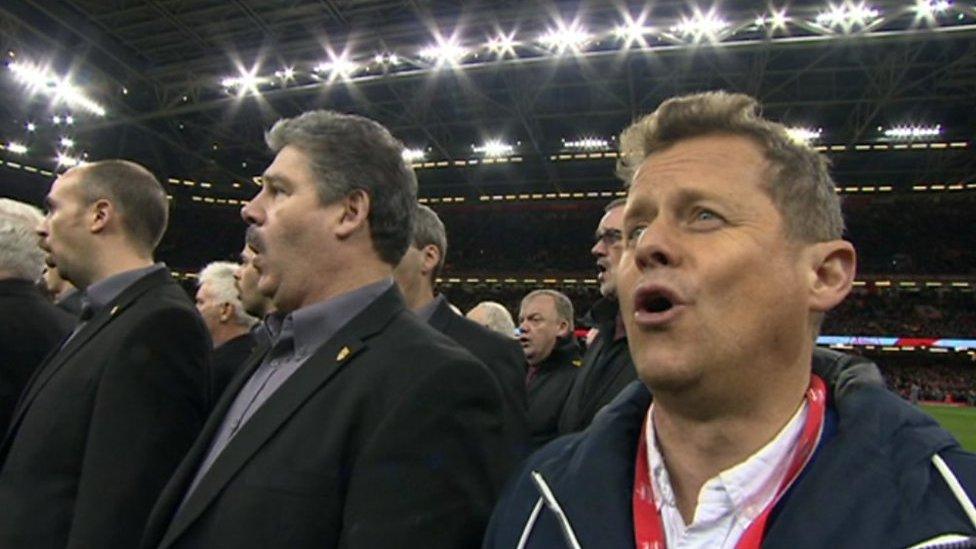
- Attribution
- Published3 February 2017
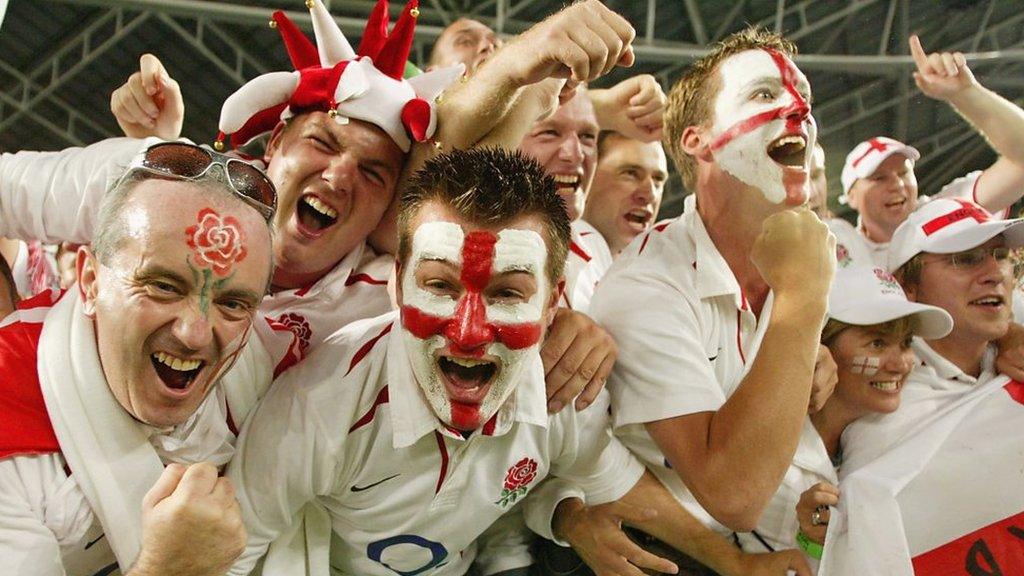
- Published12 July 2015

- Published11 December 2014

- Published7 February 2015
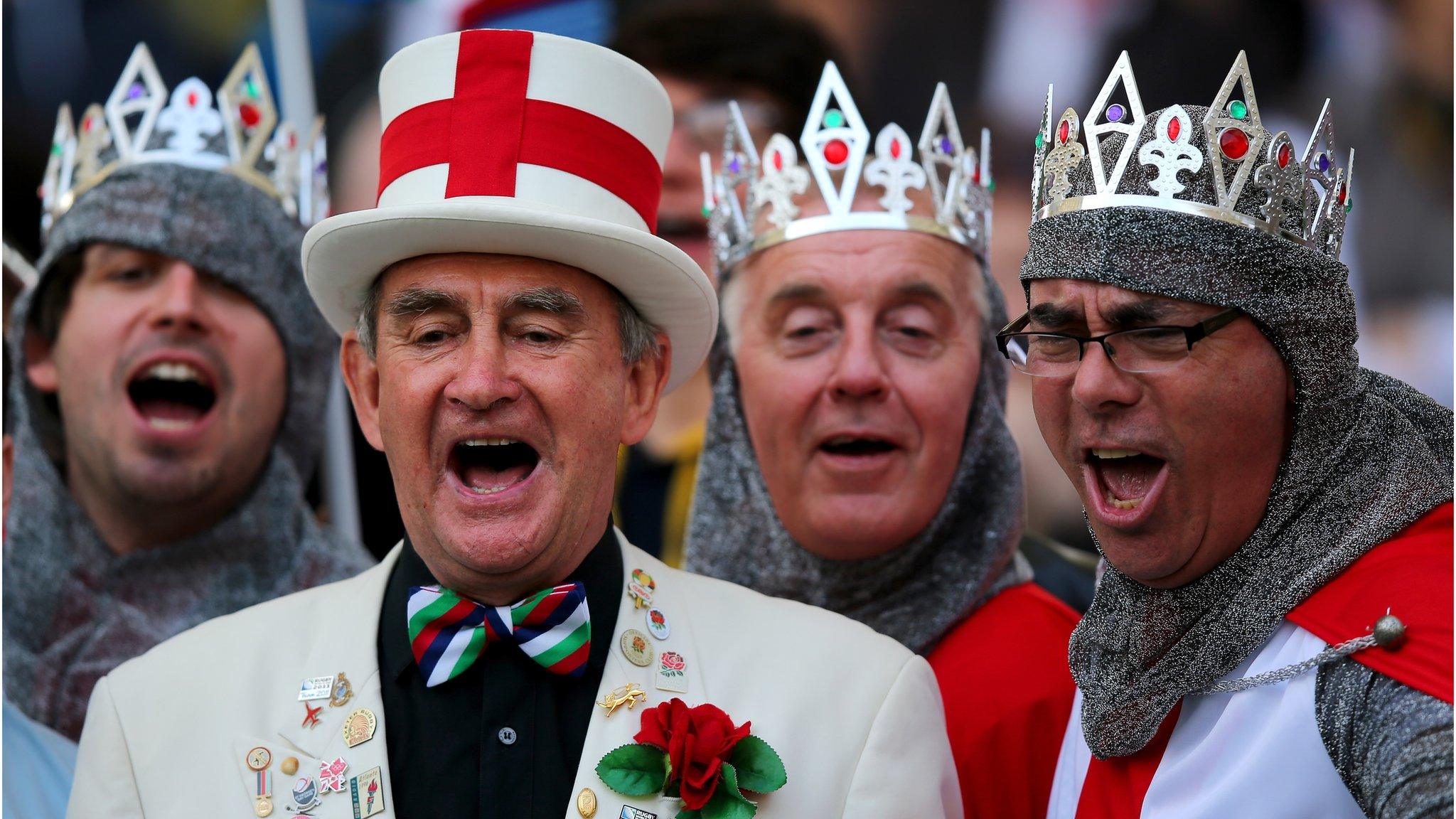
- Published11 December 2014
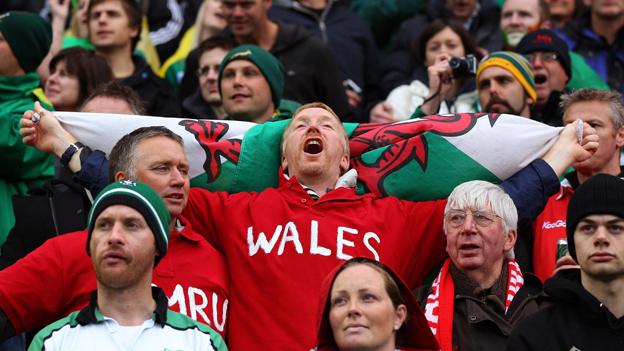
- Published23 January 2014
